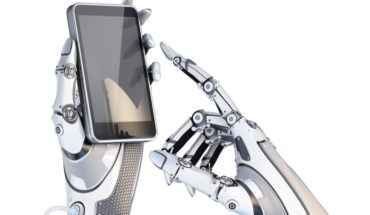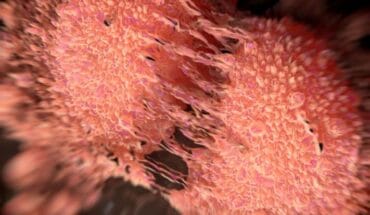On Friday, 14th March Members of Parliament will meet to debate the Rare Cancers Bill, a Private Members’ Bill presented by Dr Scott Arthur MP (Labour, Edinburgh South West).
The law change would implement key measures to address the left behind group of cancers called “rare cancers”. While each cancer may be rare, in aggregate rare cancers make up nearly 25% of all cancer diagnoses in the UK and collectively are often more complex and more deadly than more common cancers.
Pharmaceutical companies are not incentivised to research treatments for each rare cancer due to the relatively small market for the specific drugs. This means that treatments for these deadly diseases are being left behind, with new drugs not being approved for decades for many cancers.
On the situation facing those diagnosed with rare cancers, Dr Arthur said, “the left behind nature of rare and less common cancers is unacceptable, other countries have measures in place to encourage this life-saving research, it’s time the UK does too.”
He added, “almost everyone knows someone who has been affected by one of these diseases, my Bill lays the foundations to take the fight to rare cancers and end the delay in researching treatments to these cruel diseases.”
The Bill would:
- Appoint a named rare cancer research specialist in the National Institute for Health and care Research (NIHR), with a new duty placed on the Secretary of State for Health and Social Care for delivery of rare cancer research. This oversight role will provide the much-needed focus for rare cancer research.
- Create a sole UK database for clinical trials and patient data on an opt-out basis. This would give patients increased access to clinical trials and give researchers easier access to patient populations. This will make it easier to get new potentially life saving treatments to the people who need it.
- Initiate a review of ‘Orphan Drug’ Regulations, that could incentivise companies to trial existing cancer drugs for treating rare cancers. This will help encourage life saving treatments to be trialled in the UK, ensuring patients don’t lose out to investments in other countries.
Last week, 30 national cancer charities CEOs wrote to the Secretary of State for Health and Social Care and MPs, asking them to back the Rare Cancers Bill. In their joint letter they said, “Overall cancer survival has risen by nearly 10% in the last 15 years, and it’s promising that 75% of people diagnosed with cancer will survive at least one year after diagnosis. However, many rare and less common cancers have been left behind: some have a 1-year survival rate of less than 25 per cent.”
They added, “We are grateful for Dr Scott Arthur MP proposing this Private Members’ Bill and developing these solutions which, if successfully implemented, will make a real difference for people affected by rare and less common cancers.”
Dr Michele Afif, CEO of The Brain Tumour Charity said about the Bill:
“For too long rare cancers have been at a systematic disadvantage, not attracting the funding and prioritisation that they need, and the survival gap between them and the more common cancers continues to increase. This must change.
We are immensely grateful for Scott proposing the Rare Cancers Bill. This will lead to a step change in the approach to rare cancers and has the potential to make a significant difference to outcomes for generations.”
Cameron Miller and Anna Jewell, the Co-Chairs of the Less Survivable Cancers Taskforce said:
“As a Taskforce representing five cancers which are incredibly deadly (brain, liver, oesophagus, pancreas and stomach) but which are less common than others, we warmly welcome the introduction of the draft Rare Cancers Bill, recognising its critical importance in addressing the challenges faced by patients affected by these cancers.
“This Bill aims to remove barriers and incentivise research, which is essential given that these cancers have poor survival rates due to a legacy of neglect and underfunding (the average five-year survival for patients diagnosed with a less survivable cancer is just 16%).
“We believe that the proposed measures within the Bill, such as the ‘Be Part of Research’ registry, will also facilitate better communication between researchers and patients. This will ensure that individuals with less common cancers are made aware of relevant clinical trials and research opportunities. Furthermore, appointing named leads responsible for the delivery of rare cancer research across the UK will provide the necessary oversight and strategic direction to drive up survival of these cancers through more and improved research.
“Finally, we welcome the commitment to reviewing the drugs for rare conditions or ‘Orphan Drug’ regulations, as a crucial aspect of ensuring that patients with less common cancers receive the treatments they desperately need.
Dr Arthur’s Bill has also been welcomed by some of his constituents who have been impacted by Rare Cancers, they include Kira Noble known on her Facebook page as Kira the Machine, who has battled with cancer since the age of 11 when she it was discovered she had a neuroblastoma tumour that measured a staggering two litres, having since relapsed eight times and gone into remission three times.
To get treatment for her disease, Kira and her family had to fundraise half a million pounds and travel to America for Kira to undergo surgery and receive a medicine that is being trialled in the US to treat neuroblastoma.
Kira said about her experience: “Being diagnosed with Neuroblastoma in 2014 introduced me to a horrendously petrifying world where I witnessed, and still continue to witness, innocent children die too often of this disease.
It’s a relentless cancer that desperately needs more research and more funding. Treatments for relapsed Neuroblastoma are limited in the UK, which forces families to have to fundraise to pay for overseas treatment and available Clinical Trials.”
Another Edinburgh backer of the Bill is Jonathan Anderson, who’s daughter Tilly was also diagnosed with a neuroblastoma. After seeing a GP about leg and stomach pains, it was discovered that she had a stage-4 tumour that had spread to her bones. Tilly sadly died just eleven months after her diagnosis at the age of four.
Jonathan, now headmaster at Merchiston Castle school, spoke about the loss of his daughter, “within a year we went from having a very lovely, bubbly, cheeky, fun loving three-year-old, to being left without her in our lives, which was absolutely heartbreaking”.
Throughout the course of Tilly’s treatment for her tumour, Jonathan came face-to-face with the stark reality of lack of treatment options for neuroblastoma and other rare cancers, he said “It is still a cancer that is desperately underfunded in terms of research, particularly because the research pool in the UK is so small […]. So, it’s absolutely vital that all the resources that you have pool together to make it as easy for clinicians and families to have access to good healthcare, but also play their part in helping others.”
Debate of the Rare Cancers Bill will start at 9:30am on Monday, 14 March and will require the support of MPs to progress to committee scrutiny. It currently has the backing of MPs from five different parties, including Labour, the Liberal Democrats and Conservatives.
List of Cancer Charity Signatories:
Dr Michele Afif, CEO, The Brain Tumour Charity
Diana Jupp, CEO, Pancreatic Cancer UK
Anna Jewell, Chair, Less Survivable Cancers Taskforce
Chris Walden, CEO, Cancer52
Dr Jen Kelly, CEO, Grace Kelly Childhood Cancer Trust
Helen Dickens, Deputy CEO, Target Ovarian Cancer
Dr Helen Bulbeck, Director of Services and Policy, Brainstrust
Helen Morement, Chief Executive, AMMF – The Cholangiocarcinoma Charity
Rebecca Porta, Chief Executive, The Urology Foundation
Rose Woodward, Founder, Action Kidney Cancer
Richard Davidson, Chief Executive, Sarcoma UK
Dame Laura Lee DBE, Chief Executive, Maggie’s
Helen Rowntree, Chief Executive, Blood Cancer UK
Ceinwen Giles, co-CEO, Shine Cancer Support
Gail Jackson, CEO, Solving Kids Cancer
Pamela Healy OBE, Chief Executive, British Liver Trust
Sarah Quinlan MBE, Director, Radiotherapy UK
Fiona Hazell, CEO, Leukaemia UK
Ashley Ball-Gamble, Chief Executive, CCLG – The Children’s Cancer and Leukaemia Group
Hilary Lindsay, Chair, CLL Support
Zara Aitchison, Executive Team, Neuroblastoma UK
Nikie Jervis (RGN), Director of Support Services & Policy, Neuroendocrine Cancer UK
Susanna Daniels MRPharmS, CEO, Melanoma Focus
Dr Sophie Castell, CEO, Myeloma UK
Athena Lamnisos, CEO, The Eve Appeal
Tina Seymour, Chief Executive Officer, Hope for Tomorrow
Bradley Gudger, Managing Director, Alike
Dr Kathryn Scott, CEO, Yorkshire Cancer Research
Rachel Kirby-Rider, Chief Executive, Young Lives vs Cancer
Dan Knowles, CEO, Brain Tumour Research
- The da Vinci 5 Robot Is Set To Transform Bariatric Care: - 31st March 2025
- Beyond money: the hidden drivers fuelling child food insecurity - 31st March 2025
- Tobacco and Vapes Bill - 31st March 2025






